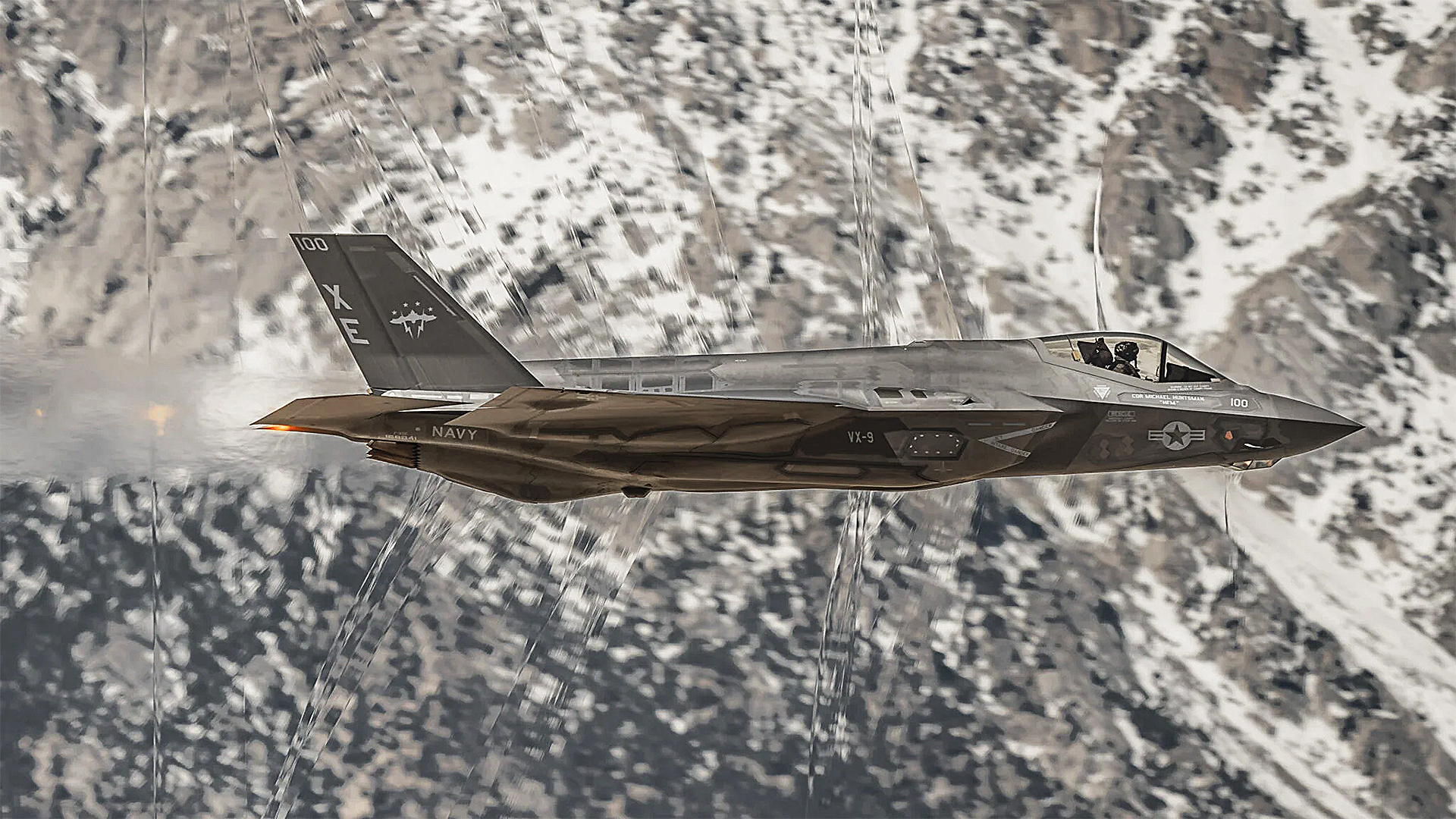There are shockwave passes… and then there are shockwave passes. And these photos of a U.S. Navy F-35C stealth jet roaring through the Sidewinder low-level training route in southern California are some of the most impressive of their kind we’ve ever seen.
The F-35C, assigned to the Navy’s Air Test and Evaluation Squadron Nine (VX-9) “Vampires,” which is home stationed at Naval Air Weapons Station (NAWS) China Lake, California, left the air around it in shock as it made two passes through the Sidewinder.
Both times it produced this spectacular effect, which happens when the air around the near-supersonic (transonic) jet warps, compressing or expanding depending on how the airflow behaves over different parts of the airframe. Those changes in pressure, in turn, change how the light is refracted or bent – leaving the prominent shockwave lines, which stack up as the jet approaches the speed of sound, and then become more conical once supersonic. Throw in the afterburner ‘shock diamonds’ and the mass of hot exhaust churned out by the F135 turbofan, and the end effect is a stunning display of physics in action, to say the least.
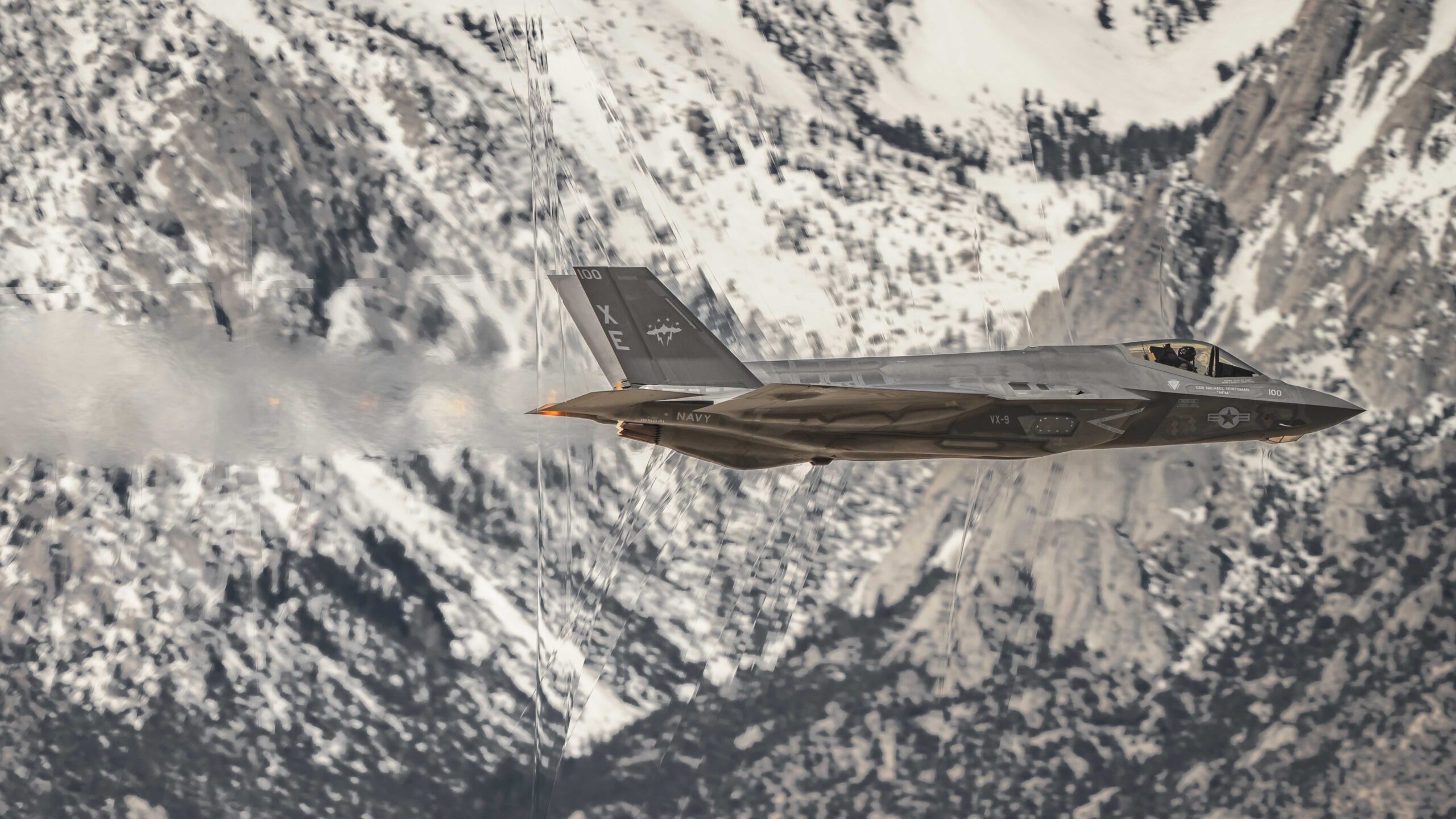
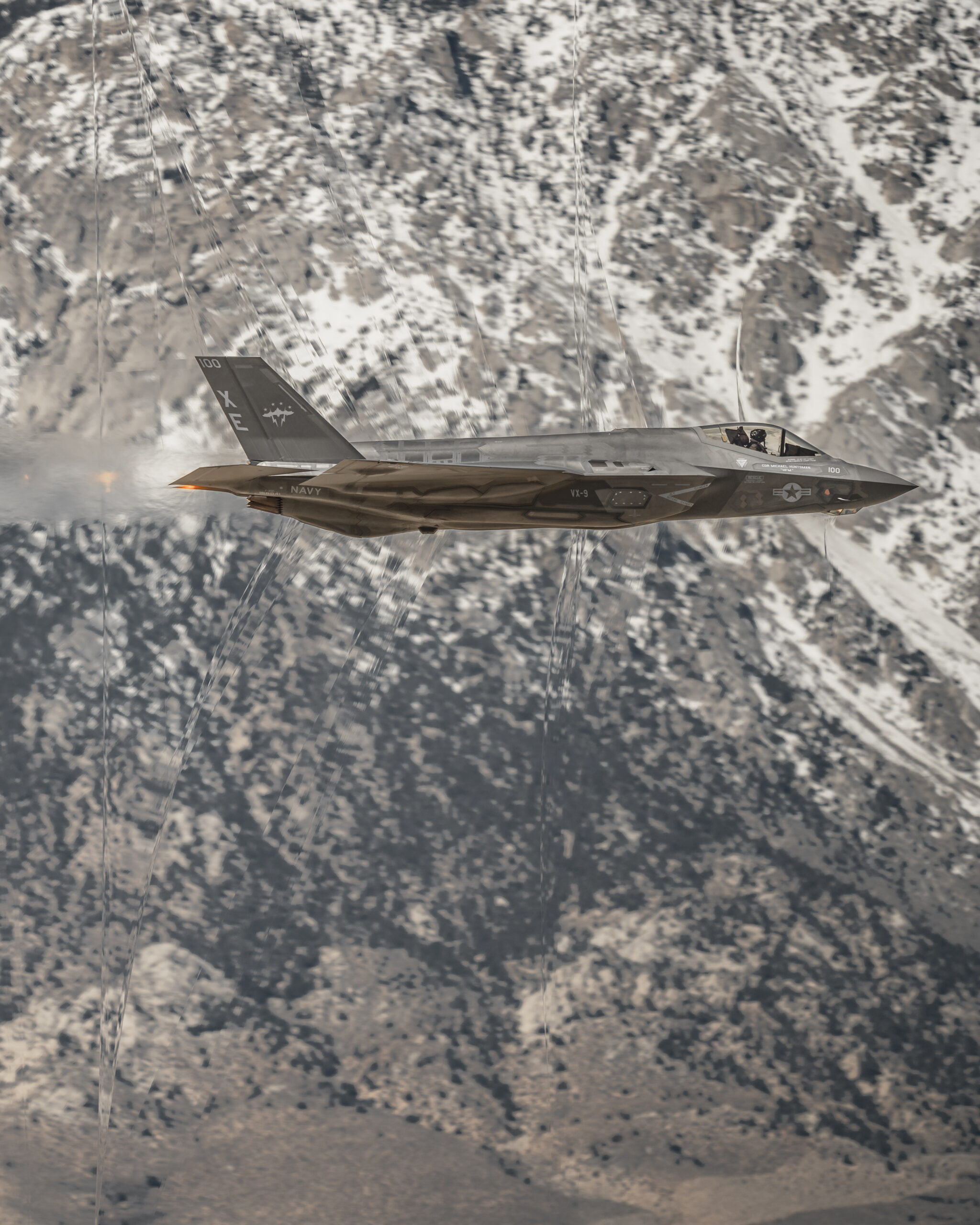
The photos are the work of @point_mugu_skies, whose other images — many of them also shot along the Sidewinder route — are an absolute must see on their Instagram page.
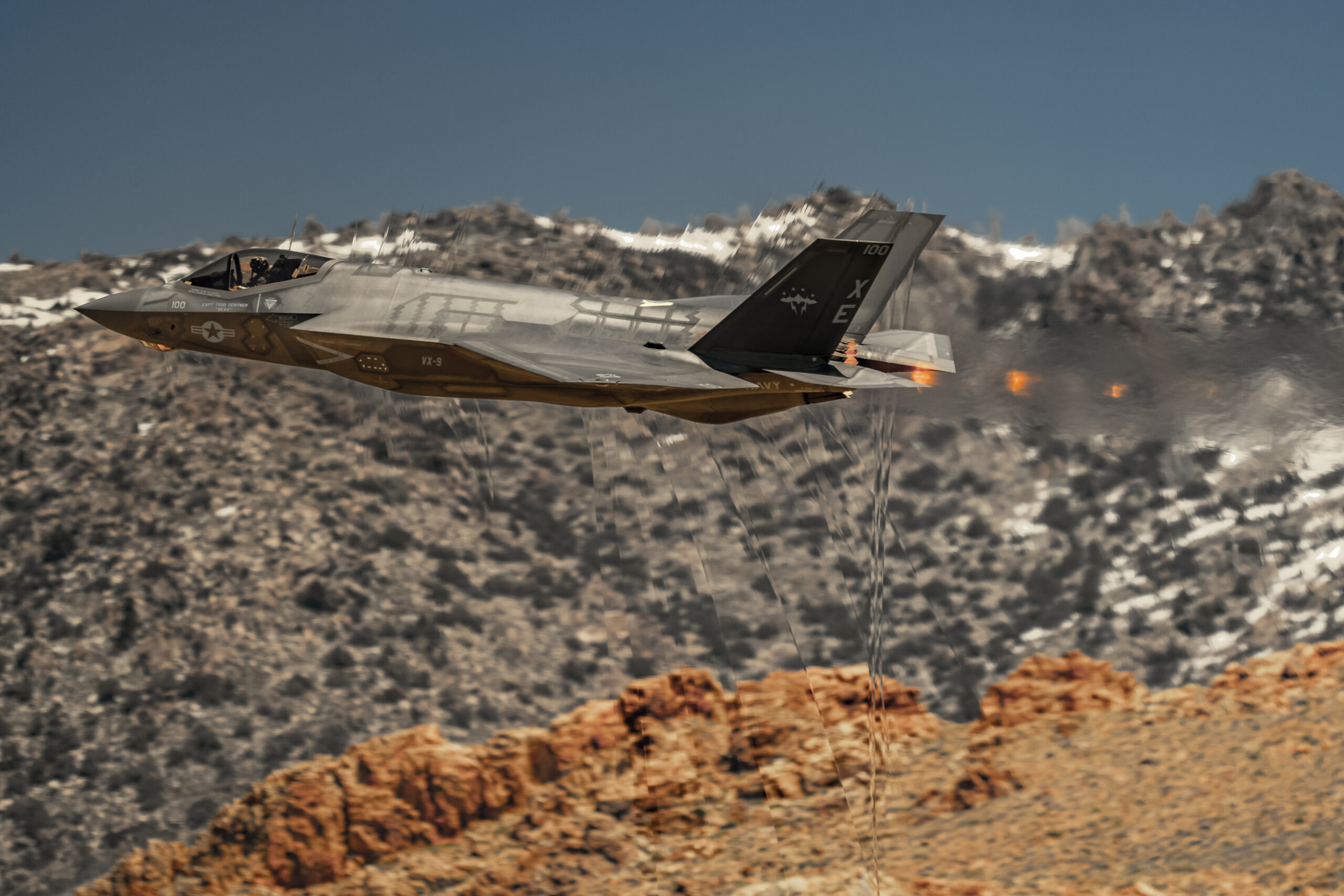
We spoke to them to find out more about how these particular photos were captured.
“As for how I got the shots, I don’t want to mention [the] precise location, but they were taken on a hill out on the Sidewinder low-level route (Southern California, Eastern Sierras),” they explained. “It’s not accessed via paved roads… it’s on the back-country roads. I hiked up to the 500-foot level.”
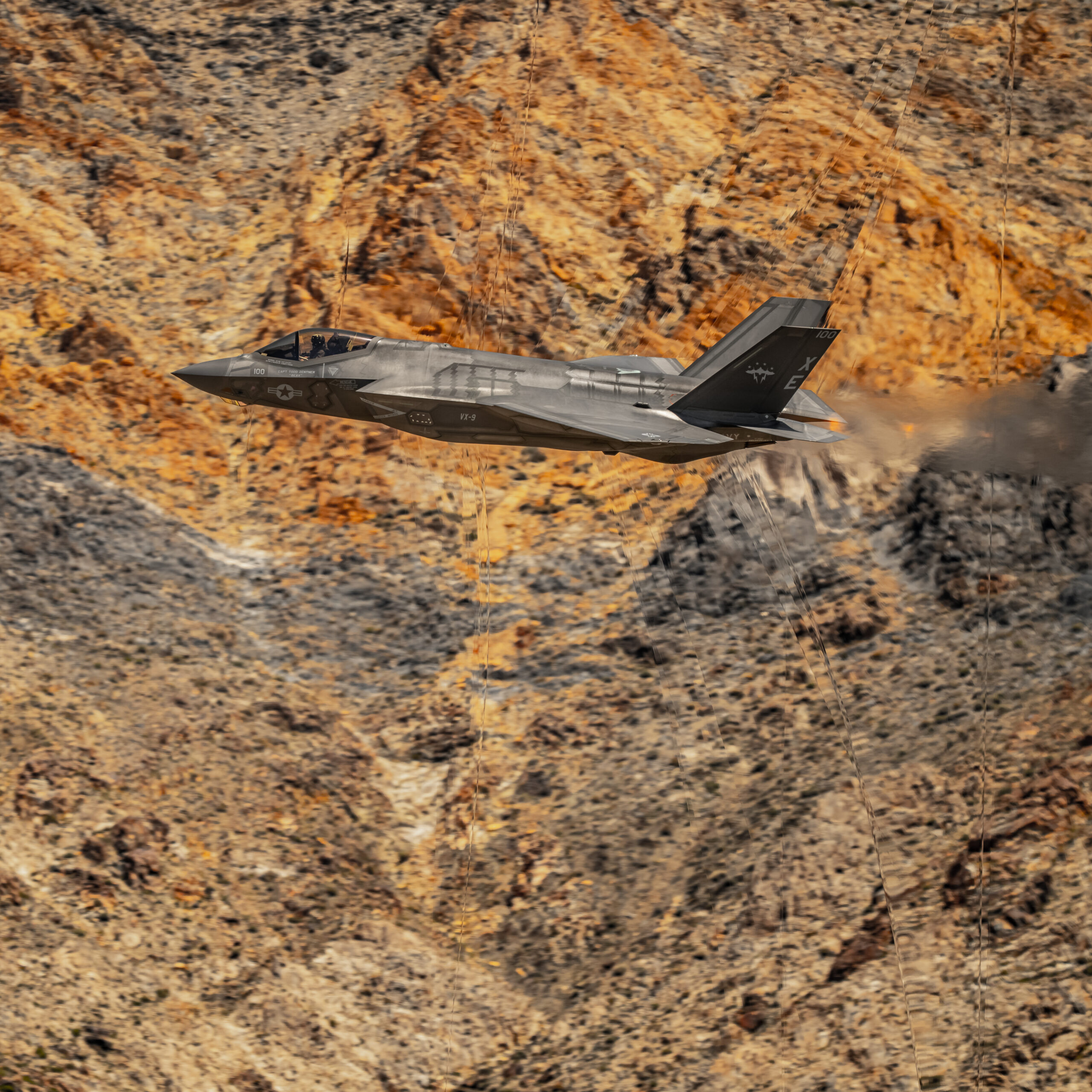
For the photography aficionados out there, @point_mugu_skies added: “My gear was the Sony A7R5 and the lens was Sony 400mm 2.8. It was a normal spring day in April with normal Sidewinder traffic and we definitely did not expect to see two shockwave passes like that.”
While these shockwave passes by the VX-9 F-35C are undoubtedly very special, the Sidewinder low-level training route probably deserves its place on the bucket list of many an aviation photographer, due to the dramatic aspect combined with the sometimes-exotic traffic that makes its way through there.
The Sidewinder route sits in the vast R-2508 Range Complex and part of it runs between Owens Valley and Panamint Valley. Up until a deadly crash of a Super Hornet in 2019, this included military aircraft blasting through Star Wars Canyon, also known as Rainbow Canyon. Low-level access for military planes to that locale was restricted following the incident, although civilian aircraft make that famous run from time to time.
That makes the Sidewinder route even more valuable and, in the recent past, we have witnessed the U.S. Air Force’s F-117 Nighthawk stealth attack jets zooming along at very low altitudes through there.
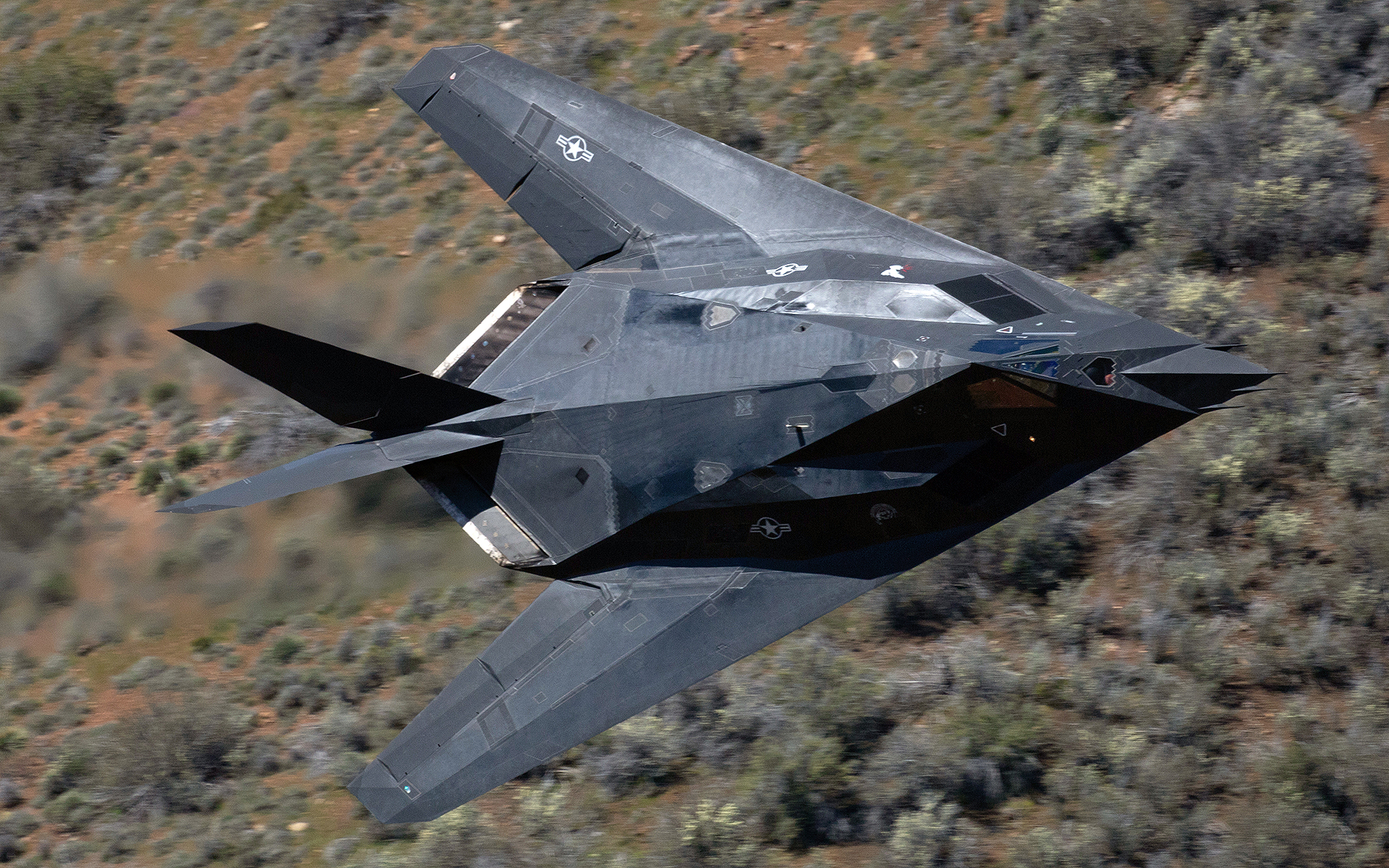
Images Courtesy of Aviation Photographer @stinkjet on Instagram
Returning to VX-9, the Sidewinder route has been the backdrop to one of the unit’s more intriguing test jets, another F-35C coated with a mirror-like skin. That jet was spotted earlier this year in the Sidewinder and its features were something we discussed in depth at the time.
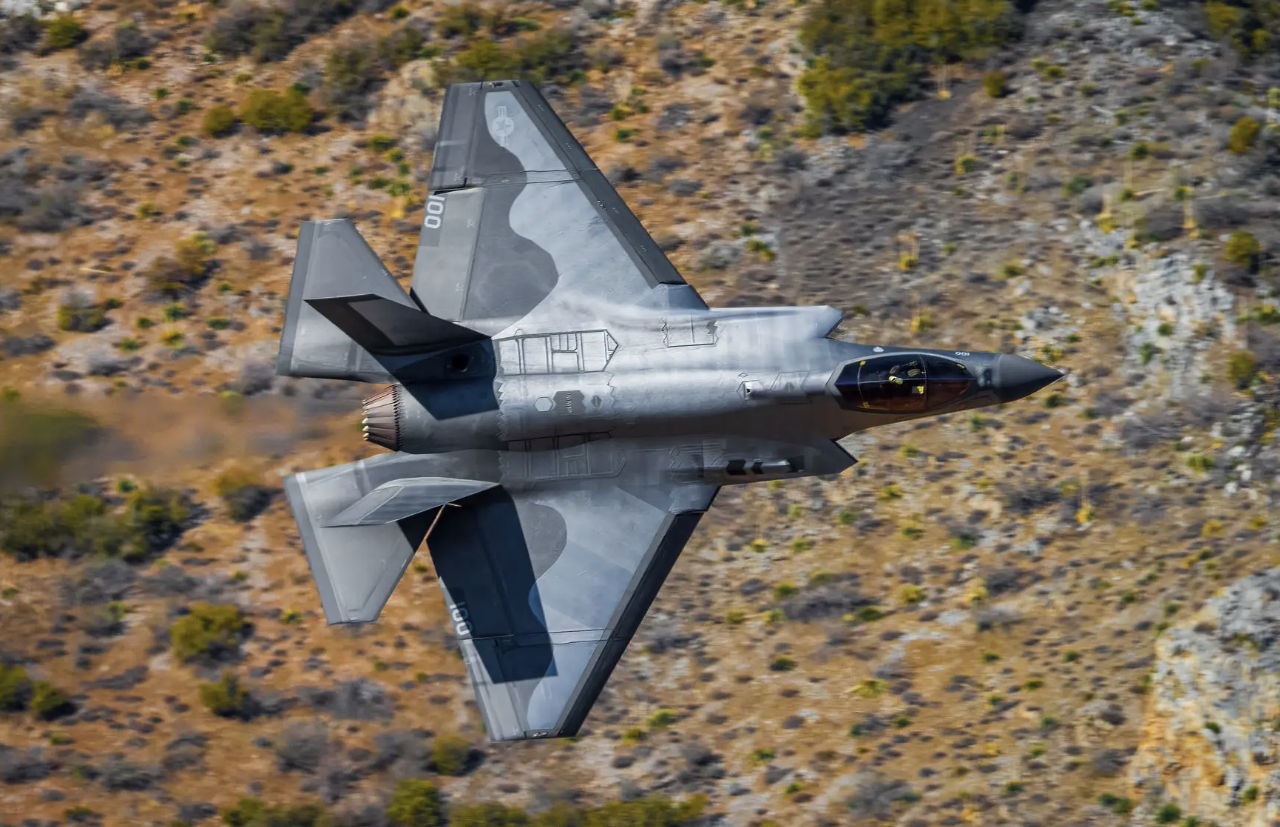
It all goes to show, with a hike up to one of the prime photography perches overlooking the Sidewinder route, you can never be quite sure what you might capture.
As @point_mugu_skies reflected, “The only thing certain out on the Sidewinder is surprises.”
A big thank you to @point_mugu_skies for allowing us to post their photographs.
Contact the author: thomas@thedrive.com
